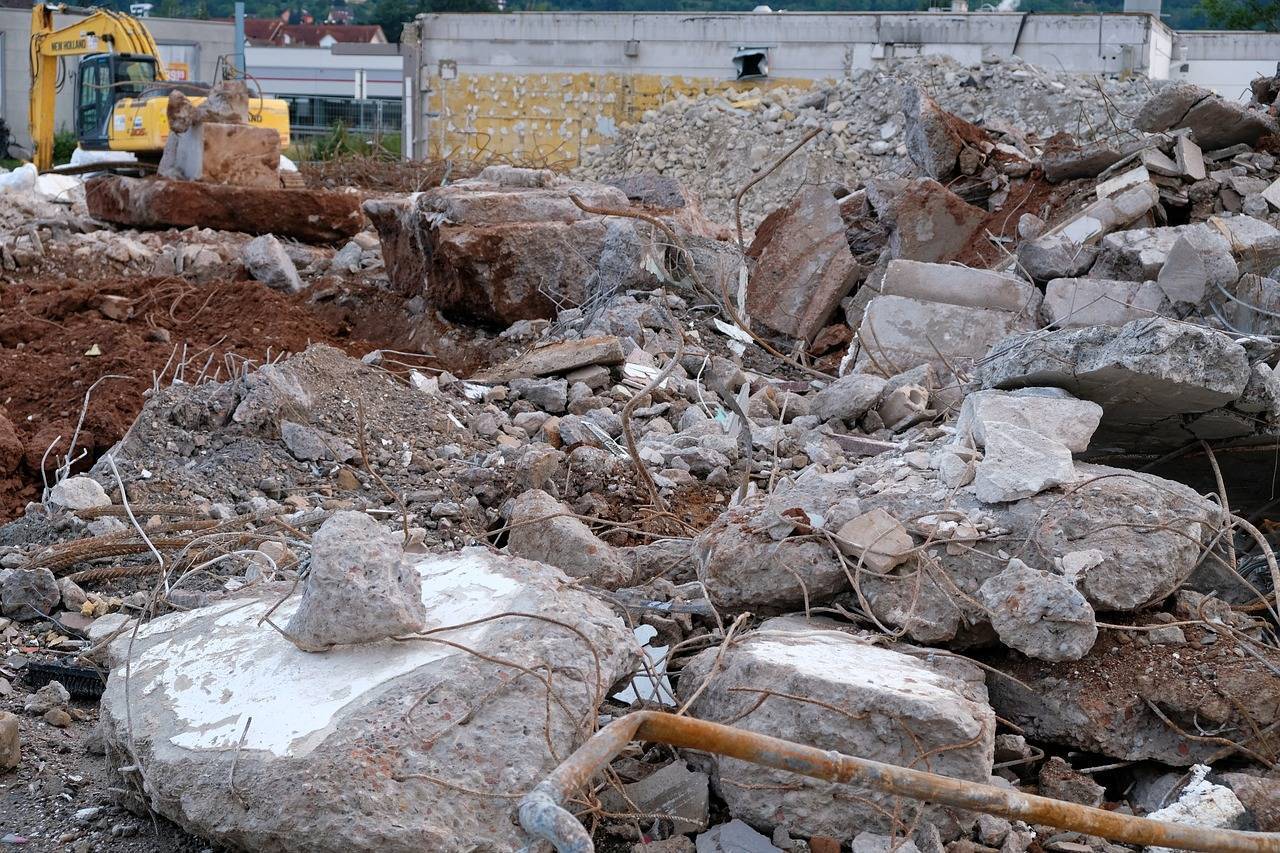Noida, experiencing a surge in real estate and infrastructure development, is grappling with a significant challenge—managing its growing construction and demolition (C&D) waste. With the city generating nearly 800 tonnes of construction debris daily, the situation is becoming critical as its lone waste management facility in Sector 80 processes only about 400 to 500 tonnes per day. The remaining waste often finds its way onto roadsides, vacant plots, and green spaces, causing disruptions and posing environmental risks.
On a typical day, large mounds of construction debris were seen scattered along a 200-meter stretch near Sectors 12 and 22, close to the Wave City metro station. Similar issues were noted in sectors 50 and 75, where waste heaps were obstructing both vehicular and pedestrian movement. These areas, which see significant traffic due to ongoing construction activities, are becoming hazardous for commuters.
Unchecked Illegal Dumping
Despite repeated warnings and the imposition of fines, illegal dumping of construction waste continues unabated. Builders and contractors tend to dispose of their debris late in the evening or night, making it difficult for authorities to monitor and catch the violators. Heaps of waste, including concrete chunks, sand, tiles, wood, and scrap metal, frequently accumulate near major roads and metro stations, creating bottlenecks and hazards for residents.
Although numerous complaints have been submitted to the Noida Authority, there has been limited action taken to clear the waste or prevent future occurrences. The Construction & Demolition Waste Management Rules, 2016, stipulate that all stakeholders—including builders, contractors, and local authorities—must ensure proper disposal of construction waste. The rules also mandate recycling of the debris to minimize environmental impact, yet unauthorized dumping remains a recurring issue.
Rising Construction Waste and Future Challenges
Noida's rapid urbanization means that the problem of C&D waste is expected to intensify in the coming years. With several new residential and infrastructure projects in the pipeline, the city could generate over 1,000 tonnes of construction waste per day within the next five years. This growth is attributed to the estimated 5% annual increase in construction waste that cities typically experience.
However, the current infrastructure may not be sufficient to handle the rising volume. Noida’s Sector 80 waste management facility, which has the capacity to process up to 800 tonnes of debris per day, is already operating close to its limit. With no plans for the immediate expansion of waste management facilities, there is growing concern among residents and environmentalists about the city’s ability to manage its waste in the near future.
Authorities Respond to the Growing Concern
The Noida Authority, responsible for managing the city's construction waste, has provided assurances that the existing facility is equipped to handle the required waste. They have also encouraged residents to report illegal dumping through a dedicated helpline, promising a response within 24 hours for waste collection and recycling. Despite this, the delay in clearing dumped waste and the lack of strict enforcement remain persistent issues, leaving residents frustrated with the slow pace of action.
Residents are particularly concerned about the long-term impact of unchecked dumping, not just on traffic and road safety, but also on the environment. While the Noida Authority is working to clear the more significant waste piles, there is a need for more systematic and timely interventions to prevent future build-ups.
Need for Comprehensive Waste Management Solutions
The current scenario underscores the urgent need for a more comprehensive and scalable waste management strategy. With the growing volume of C&D waste, the city must invest in additional waste processing plants and improve enforcement of waste disposal regulations. Fines alone have not been a sufficient deterrent, and without stronger oversight and penalties, unauthorized dumping is likely to continue.
Additionally, increased public awareness and cooperation from the construction industry will be vital to ensuring the proper disposal of debris. Effective management of construction waste will not only keep Noida’s roads and public spaces cleaner and safer but also help minimize the environmental footprint of the city’s rapid urban development.
Way Forward
For Noida to remain sustainable, immediate action is needed to tackle its growing construction waste. Expanding waste facilities, enforcing stricter regulations, and fostering collaboration between authorities, developers, and residents are essential. By implementing these measures, the city can manage its rapid growth while minimizing environmental impact and ensuring cleaner, safer spaces for all.









.png)